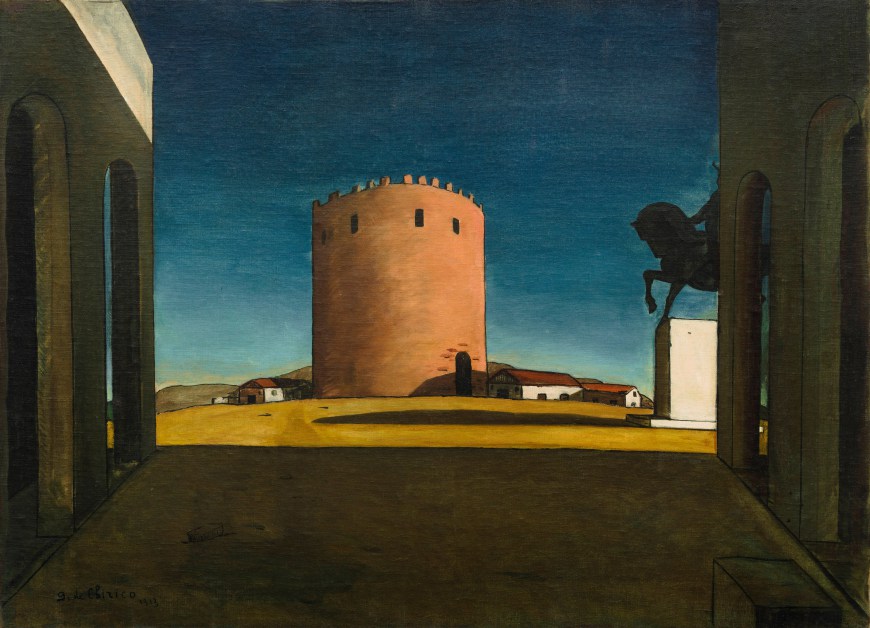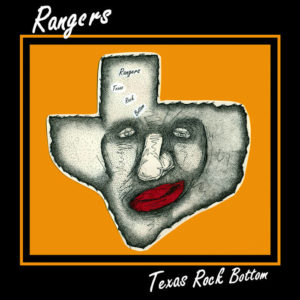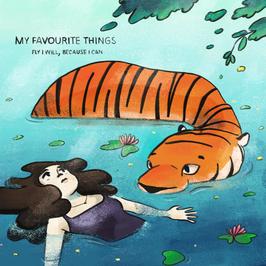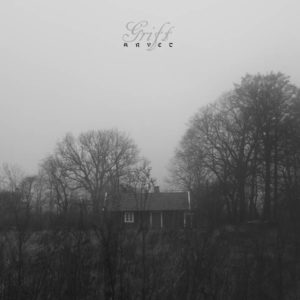In Richard Linklater’s reputedly anti-nostalgic, but actually still quite nostalgic 1993 film Dazed and Confused, Matthew McConaughey’s Fonz-like character Wooderson articulates his Fonzhood in a way that – as far as I remember – the actual Fonz never does*: “That’s what I love about these high school girls, man. I get older, they stay the same age.” That quote popped into my head, in a sardonic kind of way, when I recently re-read the book that was the subject of this previous article, Richard Laymon’s Tread Softly. When reading books you first loved at an impressionable age, time makes Woodersons of us all; it’s the slightly eerie feeling of meeting old friends, only you have aged and they have stayed the same; except of course that in staying the same, they have changed too, because your perspective has changed. What once seemed profound may seem trite, what “you” once related to, you may not; re-encountering your youth – or even more so, your childhood – through books is as complex a feeling as looking at old photographs of yourself can be.
* to be fair to the Fonz, it would be hard for him to have this kind of perspective on the creepier aspects of his Fonzhood since, by the time he was in his 40s, the Happy Days “high school students” he lurked around were themselves in their 30s
What Wooderson specifically draws attention to, and what we are forced to do, is to relate to the things we once liked from the perspective of an older person. And this is where the “genre fiction” comes in. As a teenager, especially from the ages of I think 13 to 17, my preferred reading was, in order of importance, horror, heroic fantasy and science fiction. Recently, in addition to Tread Softly, I have re-read a few books that were among my favourites in my mid-teens (The Rats, Lair, Shrine, The Dark and The Fog by James Herbert, It and Carrie by Stephen King and Weaveworld by Clive Barker) and, for the first time, what struck me about all of them (ego alert) was that I am now older than all of the main protagonists, including the ‘grownups’ in It and the parents in Tread Softly. Which of course is partly because I am now older than the authors of those books were when they wrote them; a strange thought – it’s possibly just me, but I don’t think one ever feels older than an author whose books you read when young, even when their youth is obvious. Not that the age of an author necessarily correlates to the age of their characters, but there seems to be something about the horror genre in particular that makes writers simplify and sketch the main – non-villainous – characters, rather than draw them in vivid detail. Perhaps it’s because some degree of identification with the main character makes the horror more effective, and a certain amount of vague/generic-ness is necessary to make as many readers as possible identify with those characters. I think this is pretty much explicitly what James Herbert did with his ‘everyman’ heroes.
For a variety of reasons, it’s a strange thing to try to engage with your teenage taste in books, far more difficult than it is with music, or with the books one loved as a child. For a start, and with no disrespect intended to the authors, what has to be borne in mind with some of these books is that they weren’t necessarily (or definitely weren’t) aimed at the 14-15 year old who was reading them. When reading childrens’ books, adult me can be – CS Lewis’ Narnia books are perhaps the classic example – uncomfortably aware of the feelings and attitudes – the ‘adultness’ in fact – of the author behind the book. Sometimes – as with Jan Mark’s Thunder & Lightnings (there’s an insightful article about this excellent book here), or the best of Robert Westall’s novels – it gives me a new respect for a writer who until now I was mainly nostalgic about. Other times less so; for all the informative qualities, animal welfare concerns and anthropological information in Willard Price’s Adventure series (which I loved), the core idea of the two wholesome young American boys travelling the world, encountering its cultures with genuine (if occasionally paternalistic) respect and then catching its animals & shipping them off to zoos and safari parks, feels pretty uncomfortable. Far more so in fact than Biggles or Bulldog Drummond, where even child-me was aware of the dated imperialist attitudes and (in Bulldog Drummond especially) almost (or I’m tempted to think actually) parodic levels of jingoistic racism. But Willard Price wasn’t dealing in knowingly crass, simplistic thrills as “Sapper” was.
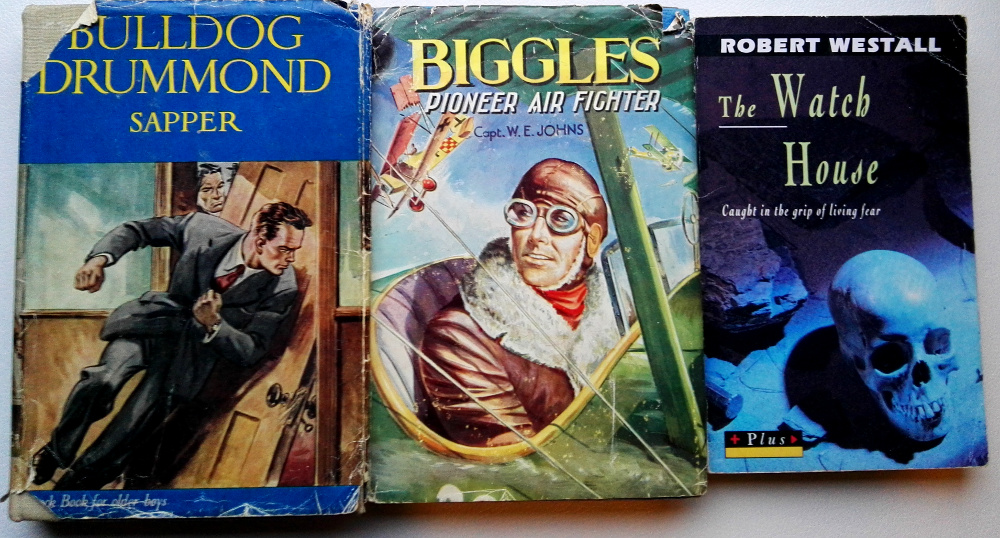
He was a genuinely philanthropic, genuinely respectful, extremely knowledgeable naturalist and social worker and I did in fact learn a lot from his books. But one of the things I learned – and I don’t think it was a bad thing to learn – was that the enlightened attitudes of yesterday, although certainly preferable to the unenlightened ones – are not necessarily the enlightened attitudes of today.
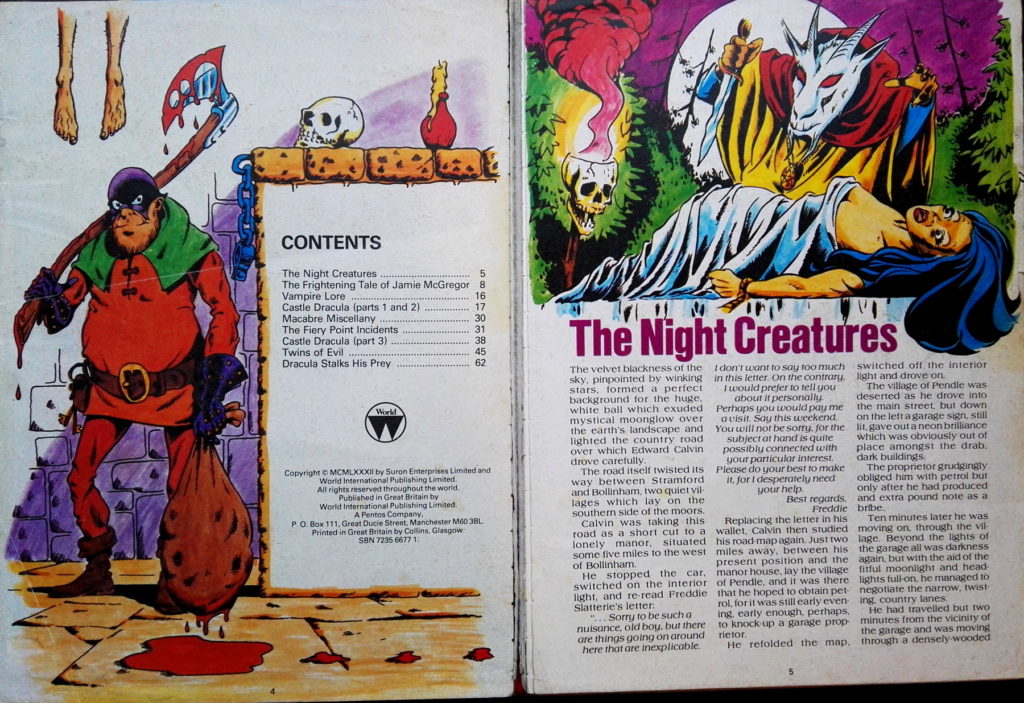

My interest in horror was probably first awakened when I was still very much a reader of Biggles & co. I loved the Dracula’s Spinechillers Annual I had got for Christmas when I was (I think) 8 or thereabouts. Around that age I also loved the (vastly inferior 80s) Eagle comic horror spin-off Scream! (which only seemed in my world to exist as ‘specials’ and never as a regular comic) Nevertheless, various things from Scream!, most notably a somewhat folk horror-ish story called The Drowning Pond with its illustrations of a skeleton with flowers in its long hair is still very vivid in my mind. And here it is!
Non-comics-wise, I remember borrowing (Doctor Who author) Terrance Dicks’ Cry Vampire! And Wereboy! from 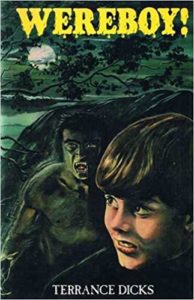
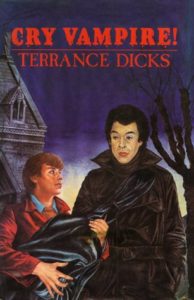 the Mobile Library (itself a very 80s detail although I’m sure they still exist) and loving them, and, later in Primary School Robert Westall’s The Scarecrows, The Watch House, The Wind Eye and The Devil on the Road made a big impression on me (and still stand up well when read as an adult). As a devotee of the phenomenally successful Fighting Fantasy gamebook series, I recall being particularly impressed by the horror-themed House Of Hell, which was very different from the swords & sorcery (or sci fi) leanings of the rest of the series.
the Mobile Library (itself a very 80s detail although I’m sure they still exist) and loving them, and, later in Primary School Robert Westall’s The Scarecrows, The Watch House, The Wind Eye and The Devil on the Road made a big impression on me (and still stand up well when read as an adult). As a devotee of the phenomenally successful Fighting Fantasy gamebook series, I recall being particularly impressed by the horror-themed House Of Hell, which was very different from the swords & sorcery (or sci fi) leanings of the rest of the series.
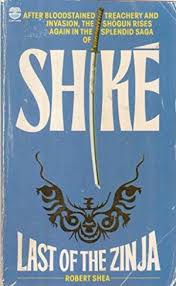
Interestingly (I use that word advisedly, with the caveat; ‘to me’) my interest in gore was parallel to, but not at all dependent on horror. I remember in my English class, at the age of (I think) 12, having to write a story based on Robert O’Brien’s Mrs Frisby And The Rats Of NIMH, and writing, under the influence of Robert Shea’s supremely dodgy Shike: Last of the Zinja books, about ninja rats attacking their enemies and slicing their intestines into ‘spaghetti’. So I was quite ready for James Herbert already.
Herbert wasn’t the first ‘adult’ horror author I read though. I think that was HP Lovecraft, who I came to through two sources he would probably have found incomprehensible. Firstly, heavy metal (he is quoted on Eddie’s gravestone on arguably Derek Riggs’ finest – and certainly my favourite as a child – Iron Maiden album cover, Live After Death (1985)) and I came across him again a little later, through the roleplaying game Call of Cthulhu. Not that I played it (though I would have liked to) but as a subscriber to Games Workshop’s White Dwarf magazine (essentially, I now realise, for the pictures) I became aware of it and my interest in Lovecraft grew.
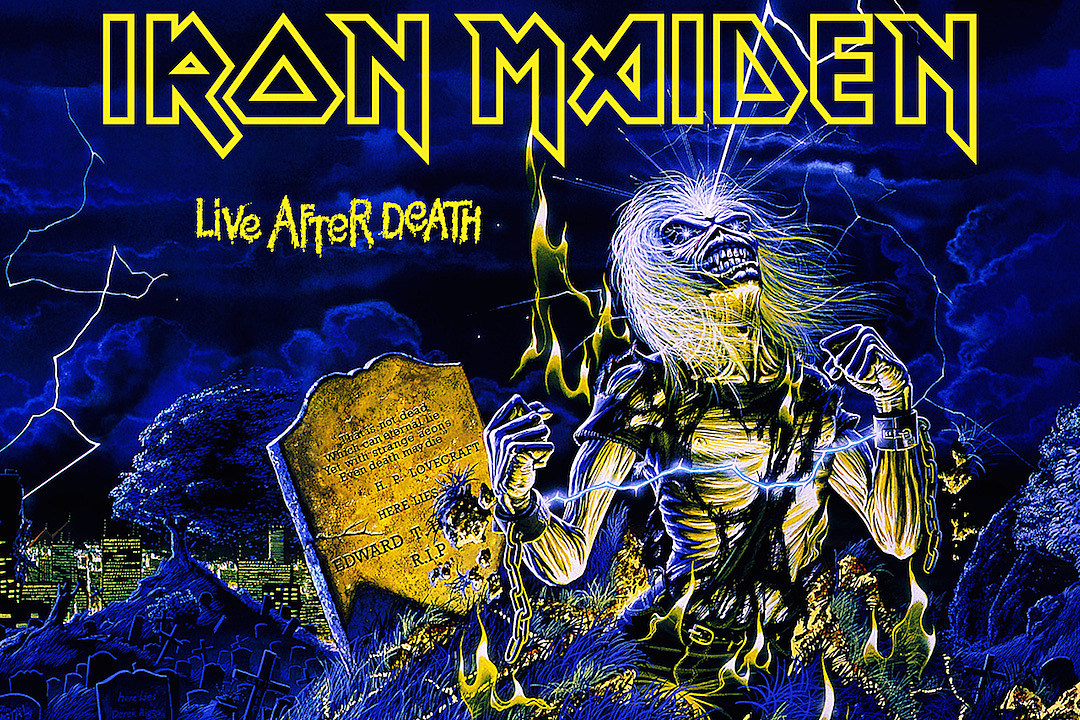
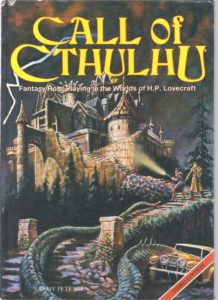
Before reading any actual Lovecraft, I’m pretty sure that I borrowed the game itself in its hardback book edition from the local library (this would either be the Rats of NIMH year or the year after). Shortly thereafter I then borrowed (from the same library – Cupar) a hardback edition of Lovecraft’s The Shadow Out Of Time and other stories and since then, Lovecraft has been one of the few writers I’ve never ‘grown out’ of, or lost interest in. As such, he fades from this article now except for two more observations; firstly, Lovecraft’s protagonists – sensitive, articulate, terrified – are clearly Lovecraft himself. The author died when only a few years older than I am now, but both Lovecraft and his characters will I think always feel older to me than I do. People – like Michael Moorcock (another teenage favourite) – who don’t like Lovecraft’s writing, usually don’t like the florid style and neurotic tone of his stories – the elements which to me are his real strengths as a writer and make his writing – although widely imitated – genuinely inimitable; no-one else captures that tone. Secondly, that first Lovecraft book I read had no illustration on the cover (on the whole I think Lovecraft has been badly served by artists and illustrators, though I love many of their efforts – and anyway it’s his own fault the illustrators so often fail). but two pictures were instrumental in making me want to read his work; there was the art for a Call of Cthulhu module called Green And Pleasant Land that was advertised prominently in White Dwarf, and a Les Edwards painting (possibly unrelated to Lovecraft in origin) used in the Call of Cthulhu book. (Edwards’ Croglin Vampire*, also used in the book was a superb picture too, though less Lovecraftian*)
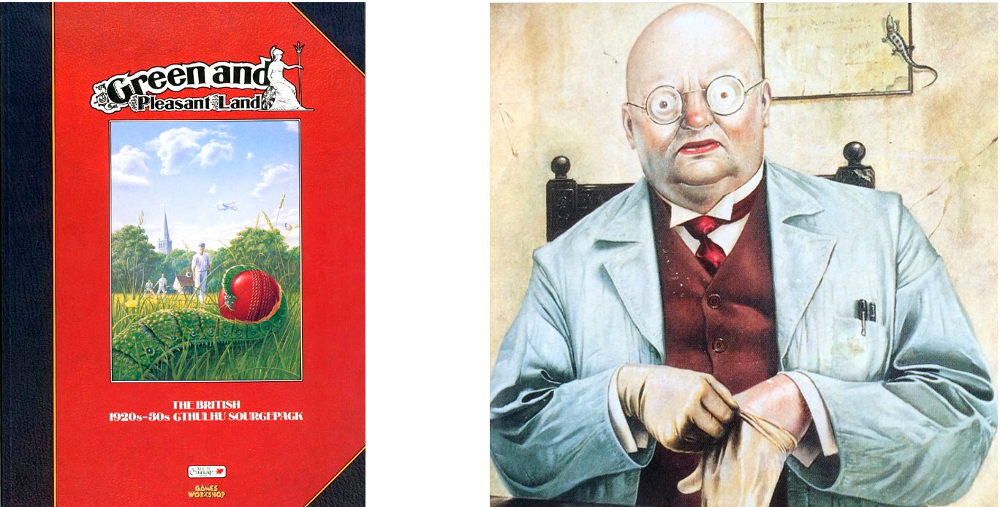
*Still very interesting however; read about the ‘real’ Croglin vampire here
So anyway; although I have very shadowy memories of reading the opening of Cujo (I think my mum had it) and seeing the film versions of Cujo and Christine, the first horror novels I remember reading in their entirety are James Herbert’s The Rats and Stephen King’s Pet Sematary and It. I remember an interview in FEAR magazine issue two, James Herbert said that the characters in his novels were ‘everyman’ – and in his early novels in particular, it’s a very specific kind of everyman; In The Rats (1974), we meet Harris, “teaching art to little bastards whose best work is on lavatory walls. Jesus Christ!” and “At thirty two he was back [in the East End], teaching little facsimiles of his former self…” while in The Fog (1975) we find that “At thirty-two, [environmental investigator] Holman was still young enough to be angered by the seeming lack of resolution shown by his superiors when he himself had taken great risks to ferret out the proof they asked him to provide.”
Variations on these characters – tough, working or lower-middle class, cynical about the motives of those in charge; thirty two – are essentially versions of the young(ish) James Herbert himself, which is understandable, and they were to appear in the majority of his books until the mid-to-late 80s, when he seems to have become interested in characters with a little more individuality. Those ‘everymen’ – Harris, Holman, Pender, Culver, Bishop – are little more than ciphers, characters made of a few (mostly) well-selected details but overall as relatively simple as the dangers they face – that is, rats, fog, more rats, a fog-like darkness etc.
When the stories get more complex, as with The Spear, The Jonah and the aforementioned Shrine, it’s noticeable that the characters do too. In Shrine, the hero, Gerry Fenn is actually younger than usual (29) but even more jaded; a wannabe tabloid journalist(!) who we first meet “tired, angry and a little drunk” and ranting about “rent-a-left” loonies. As a teenager I took James Herbert’s statements about politics at face value (this isn’t quite a quote but I’ll keep the inverted commas as what he said in that issue of FEAR was definitely something like “I’m not anti-right, I’m not anti-left, but those in power always look after themselves”). Now – especially after reading his final novel Ash (2012) perhaps the most unintentionally funny book I’ve ever read – Herbert’s apparently apolitical stance seems – like his everyman character and his ‘have your cake and eat it’ attitude to sex (describe it in titillating detail but punish the characters who indulge in it illicitly) – pretty reactionary, although his point about the powers that be is of course a valid one. But still; maybe the strangest thing about reading James Herbert as an adult is not the paranoia about what governments get up to, or the preoccupation with violent death; it’s that supposed everyman. I guess as a young teenager I saw him/them as simply ‘an adult’, but as an adult – and an older one than most of those characters are – I see him/them as… a bit of an asshole really, which mars the enjoyment of the books a little for me. But maybe just for me; possibly ‘everyman’ really is a centre-right-to-borderline-fascist asshole. Complicating things further, sometimes – as in Shrine and especially some of Herbert’s later books like Creed – it seems like we are definitely supposed to view the character as unsympathetic/unpleasant, which is odd in that it diminishes the effect of the horrors they experience to some extent; the effect is a little like those ‘ghost hunters’ type of TV shows, where noisy, aggressive people blunder around in the dark taunting spirits for not showing themselves and then scream like hysterical children at the least noise or drop in temperature; good.
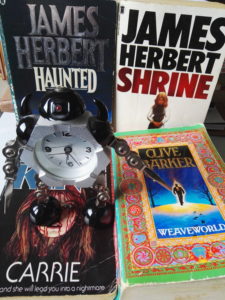
By contrast, Stephen King is interesting, in that the book that made his name – Carrie – has no hero at all to speak of, just Carrie herself, and the impersonal voices of the various documents that tell her story. As a teenager I wasn’t very keen on the book and found it, despite its brevity, far harder to read than It. I don’t think I really understood its popularity either. Reading it now, I find it far more impressive and effective, maybe because as a teenager, King’s insight into teenagers and their lives seemed unremarkable (ie I literally didn’t give it any thought) whereas now I think it’s one of the key features of almost all of his work that I like the most. In Carrie, as in It, the vividness of the horror is increased by the framing of the story. In It the story is being told “now” (although now is obviously the 80s) and segues into the 1950s sections in a self-consciously cinematic (or televisual) ‘flashback’ kind of way, whereas in Carrie, we know right from the beginning that Carrie’s story has already ended and become history. Although that sounds like it should have a distancing effect, what it actually does is give a feeling of reality. We don’t so much empathise with the characters as look on at their plight – but King is a good enough storyteller to engage the reader’s empathy without having to put them directly into the characters’ shoes.
Stephen King and James Herbert both brought a sense of modern-ness to the horror genre in the 1970s (not that they were the only ones, but for me they were the most important for the 80s horror fiction explosion, Herbert possibly less so in the USA), but they did so through almost opposite means. Both abandoned the gothic/melodramatic/romantic element of horror that had been at the genre’s heart, but after that, they part ways. Herbert is modern via the immediacy of his bluntly explicit descriptiveness; a very 1970s matter-of-factness; cold, harsh and almost industrial (the Throbbing Gristle of horror literature maybe?); horror with no politeness. Carrie, has a cold, clinical, matter-of-fact quality, but it’s entirely unlike Herbert’s – it isn’t about the viscera. With The Rats, James Herbert was telling a nasty story, as vividly and convincingly as he could, to make it feel real. With Carrie, Stephen King heightens the reality by saying this isn’t a ‘story’ at all; this is what happened. As a teenager I mostly preferred James Herbert, but as an adult I find that Stephen King is far easier to enjoy. From the adult perspective, King’s teenagers are still teenagers; in fact even more so than they seemed at the time; whereas Herbert’s adults are ciphers, or in his more developed characters, people who on the whole I just don’t like.
Although I mentioned James Herbert, Stephen King and Clive Barker as a kind of trinity of 80s horror in my Richard Laymon article, Barker is and always was the obvious odd man out of the trio. Firstly because – with a few exceptions – the standard idea of ordinary people encountering horrible things isn’t his primary kind of story. In fact the idea of ‘ordinary people’ isn’t one that I associate with Barker at all; not because (as far as I can tell) he is dismissive of everyday kind of characters, it feels more like he just doesn’t really believe in them. In Weaveworld (1987), the hero is to all intents & purposes ‘ordinary’ – “His name is Calhoun Mooney, but he’s universally known as Cal. He is twenty-six, and has worked for five years at an insurance firm in the city centre.” We first meet Cal trying to catch an escaped racing pigeon. A working class Liverpudlian in the 80s seems the very epitome of ordinariness, but as his name indicates, there’s always something a little otherworldly about Cal (even compared to for instance, the villainous, magic-using Shadwell, who fits in in Cal’s prosaic world far more easily than Cal himself seems to). I can’t remember if I felt this way about Cal, or the book itself when I first read it (another library acquisition I think, I certainly read it at the time of its first paperback edition if not before). He seems a younger, stranger character than I remembered; but then the whole book feels stranger. Not so much the overtly fantastical parts, but the Liverpool-set opening chapters.
Without thinking much about it, I had always assumed that Weaveworld was set “nowadays”, i.e. in the late-80s, when it was published, but there are odd mentions, such as the police arriving in a ‘Black Maria’ – I don’t know when the UK police stopped using black vans, but I know that even in my earliest recollections (late 70s/early 80s) they were white – that make the Liverpool Barker describes feel both specific and vaguely unreal. Is this intentional? Clive Barker grew up in working class Liverpool himself, in the 60s and 70s, but was not much older than Cal Mooney when writing Weaveworld (I wouldn’t be at all surprised if he started writing it when he was 29 in fact). And yet; I remember seeing him on TV around the time the book was published and being surprised at his relative lack of a Liverpool accent; perhaps because of his background in theatre and experimental filmmaking he seemed at ease on television, but always has a hint of the otherworldly quality I associate with his work. Weaveworld has been ‘in development’ in Hollywood for years, but I’d say that unless they can somehow go back in time and get the young Clive Barker, the production will never have the right Cal Mooney. In fact this 1988 interview with both Clive Barker and James Herbert could almost be with “Mooney” and “Harris” and probably tells you everything you need to know about the differences between the two authors’ work; If Harris, Holman et al are James Herbert and the gritty urban settings of London and its environs are their natural habitat, then Cal Mooney equally is Clive Barker, and ghost-Liverpool and the magical world of The Fugue is his. And I’m not sure either author had it in them – at that time at least – to write convincingly about the world of the other, even if they had wanted to.
So what of it all? I don’t know; are there conclusions here? Reading favourite teenage books is like visiting your school long after you left it – everything is familiar, but smaller than you remembered. Genre fiction is by its nature somewhat generic, and is largely plot, rather than character-driven. Lovecraft again is an exception, because somehow his stories manage to be neither plot, nor character driven, so much as they are perspective-driven; sometimes the horror, omnipresent in his best work, has very little narrative to fuel it, just a tone of voice. The heroines and heroes of most of the horror, fantasy and sci-fi I used to devour as a teenager were mostly there as stand-ins for the reader, or for the writer. Most horror authors whose careers last any length of time start to write novels about writers, just as successful musicians start writing songs about being on tour. Going all the way back to Mary Shelley and Bram Stoker, the villains in horror have always been more memorable than the heroes (actually, Frankenstein is more complex than just hero/villain, but I’ll stand by it), in the 80s with horror cinema this becomes even more noticeable…
At some point a real conclusion will come to me and I’ll add it here; until then, the thing I love about these stories? I get older, they stay the same age.



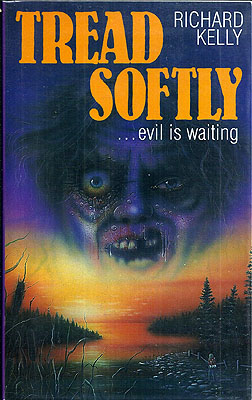
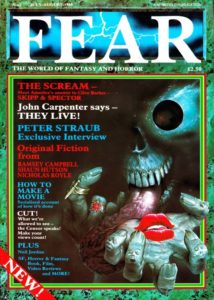
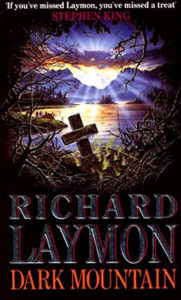
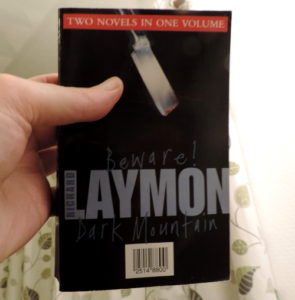
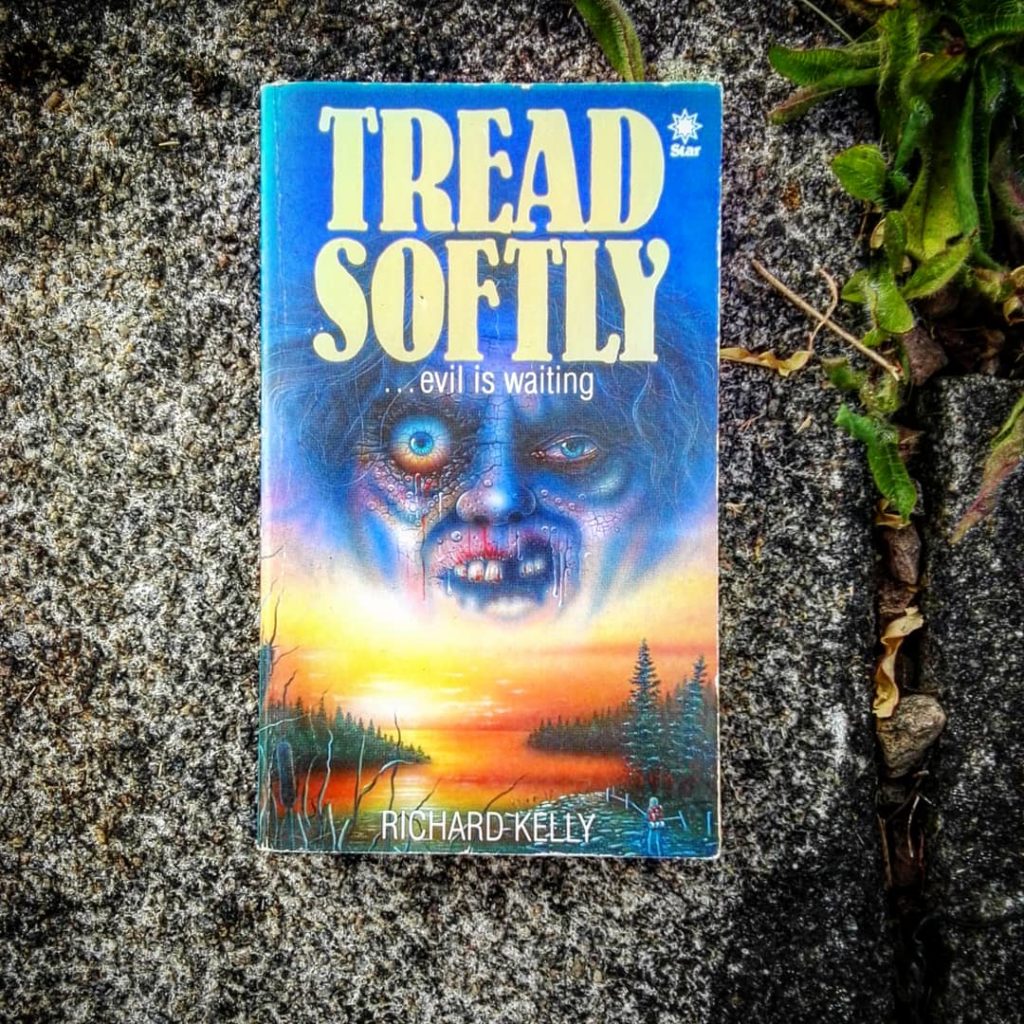
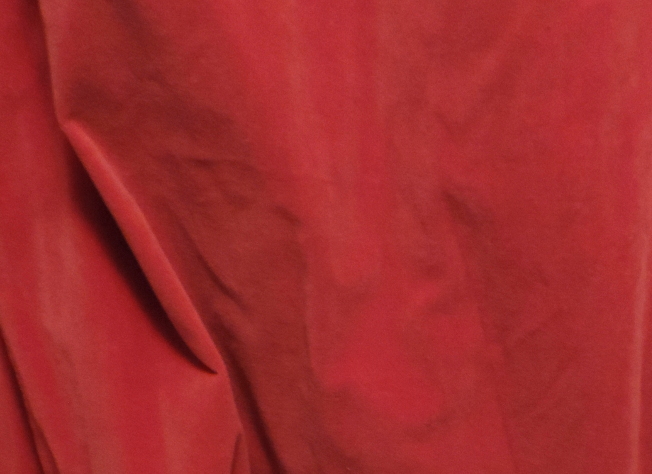
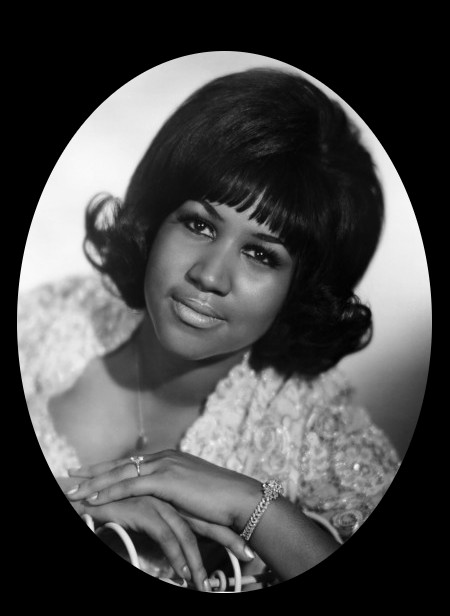
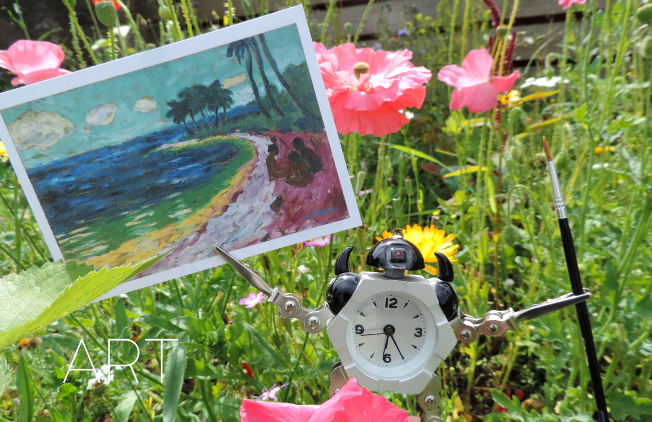

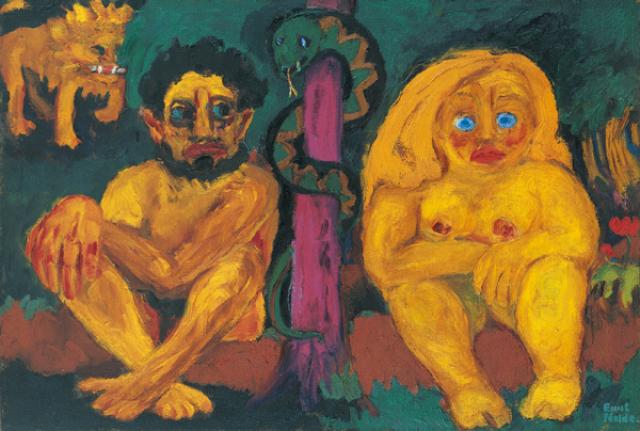
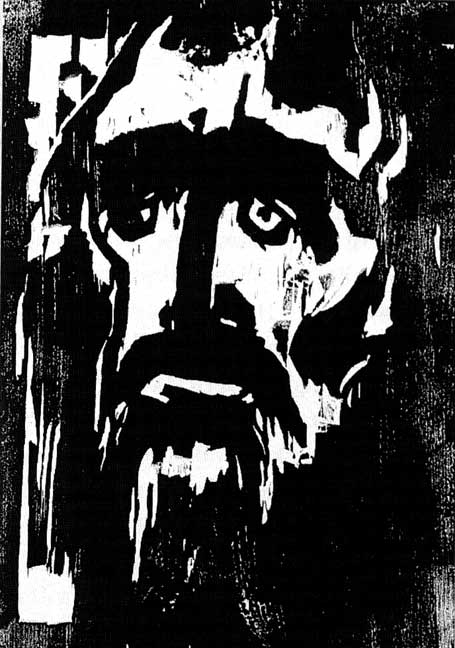


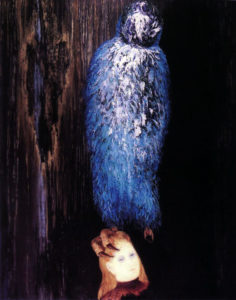
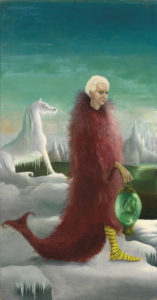
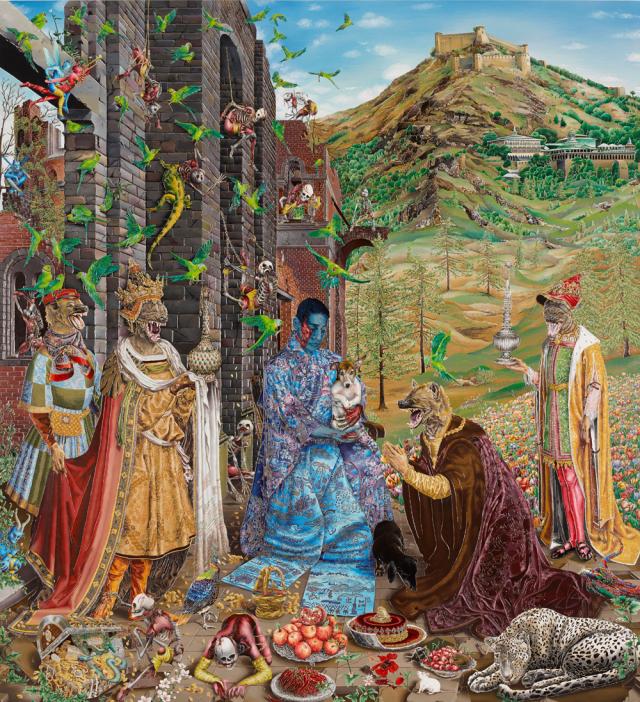

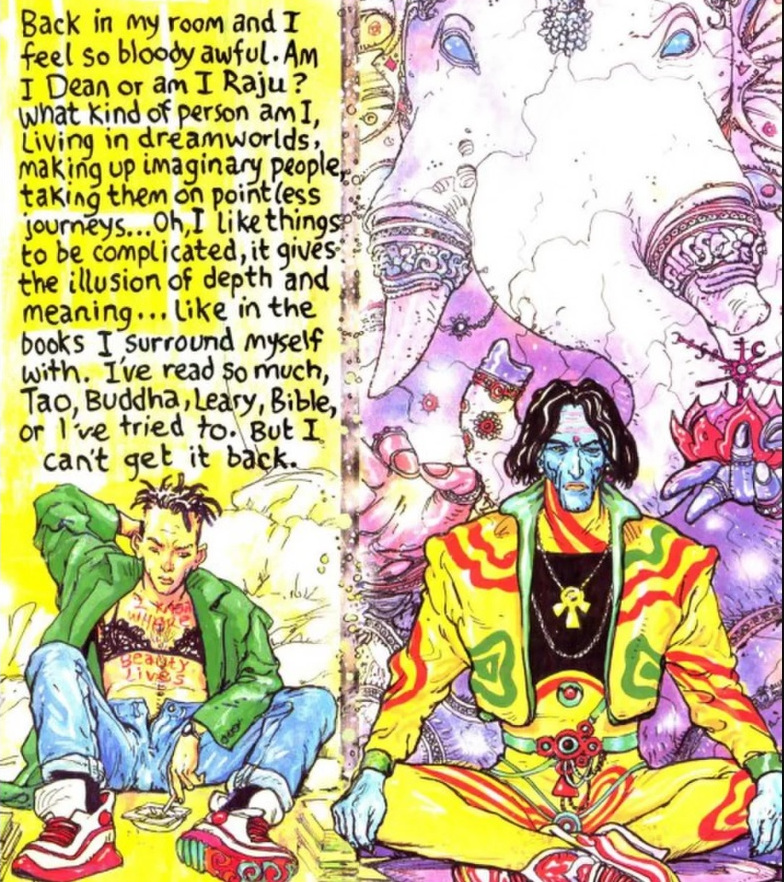
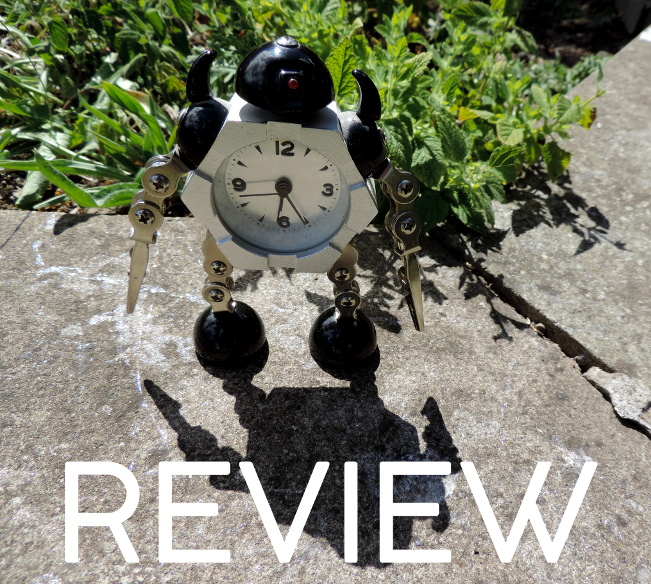
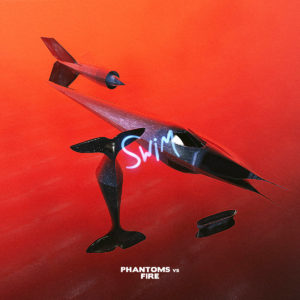
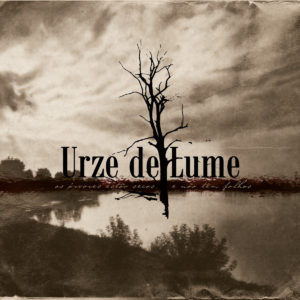
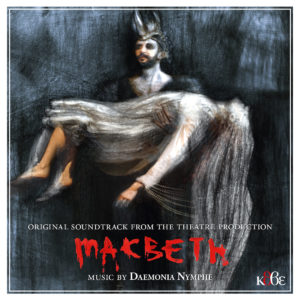
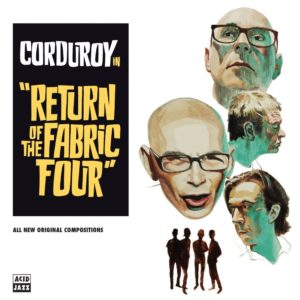
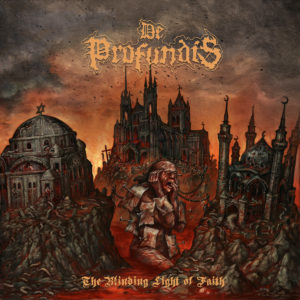 I am (as I think most people probably are!) quite fussy about death metal, but without being retro in any kind of self-conscious way, De Profundis make music that would sit happily in the late 80s/early 90s death metal scene. The Blinding Light of Faith is an album that can hold its own in the company of any of the big names of death metal; superb, intelligent musicianship and songwriting – it’s a seriously impressive album.
I am (as I think most people probably are!) quite fussy about death metal, but without being retro in any kind of self-conscious way, De Profundis make music that would sit happily in the late 80s/early 90s death metal scene. The Blinding Light of Faith is an album that can hold its own in the company of any of the big names of death metal; superb, intelligent musicianship and songwriting – it’s a seriously impressive album. 80s veteran(s) Lizzy Borden (both a singer and a band) seem always to suffer from being mis-pigeonholed, whether as a glam band (he/they did have the image), Twisted Sister clones (ditto), or some kind of Alice Cooper-esque horror-metal act (partly the name, partly the image innit), but if you listen back to the best of the band’s 80s work, especially Love You To Pieces, they were really a classic metal band, more Iron Maiden-meets-W.A.S.P. than Motley Crue. On the new album Lizzy himself takes centre stage, singing better than he ever has – no mean feat – and playing all the guitars on what is a very song-based album. It’s not very heavy – more a kind of homage to bands like Cheap Trick and Queen than the early 80s Lizzy Borden sound. But it’s really good if you like that kind of thing, and it’s great to hear Lizzy really going for it after a couple of slightly patchy, compromised-sounding, ‘not bad’ records.
80s veteran(s) Lizzy Borden (both a singer and a band) seem always to suffer from being mis-pigeonholed, whether as a glam band (he/they did have the image), Twisted Sister clones (ditto), or some kind of Alice Cooper-esque horror-metal act (partly the name, partly the image innit), but if you listen back to the best of the band’s 80s work, especially Love You To Pieces, they were really a classic metal band, more Iron Maiden-meets-W.A.S.P. than Motley Crue. On the new album Lizzy himself takes centre stage, singing better than he ever has – no mean feat – and playing all the guitars on what is a very song-based album. It’s not very heavy – more a kind of homage to bands like Cheap Trick and Queen than the early 80s Lizzy Borden sound. But it’s really good if you like that kind of thing, and it’s great to hear Lizzy really going for it after a couple of slightly patchy, compromised-sounding, ‘not bad’ records. Away from metal, this is a really interesting, good album if you like – well, what? “Film soundtrack music” isn’t really a genre, is it, but that’s what Fire Behind The Curtain makes me think of. I’ve seen it described as neoclassical and minimalist too, but neither of those feels quite right to me. It’s a beautifully cohesive-yet-eclectic collection of mostly-instrumental pieces vary from haunting and bleakly forbidding atmospheres to warm and embracing melodies.
Away from metal, this is a really interesting, good album if you like – well, what? “Film soundtrack music” isn’t really a genre, is it, but that’s what Fire Behind The Curtain makes me think of. I’ve seen it described as neoclassical and minimalist too, but neither of those feels quite right to me. It’s a beautifully cohesive-yet-eclectic collection of mostly-instrumental pieces vary from haunting and bleakly forbidding atmospheres to warm and embracing melodies. I can’t really write an awful lot about this album from the always-dependable I Heart Noise label, as I’ve only just started listening to it really; but so far I love it. It makes me think of Lou Reed, or Alan Vega covering John Lennon’s Plastic Ono Band album; sparse, forlorn, world-weary and a little bit sleazy.
I can’t really write an awful lot about this album from the always-dependable I Heart Noise label, as I’ve only just started listening to it really; but so far I love it. It makes me think of Lou Reed, or Alan Vega covering John Lennon’s Plastic Ono Band album; sparse, forlorn, world-weary and a little bit sleazy.
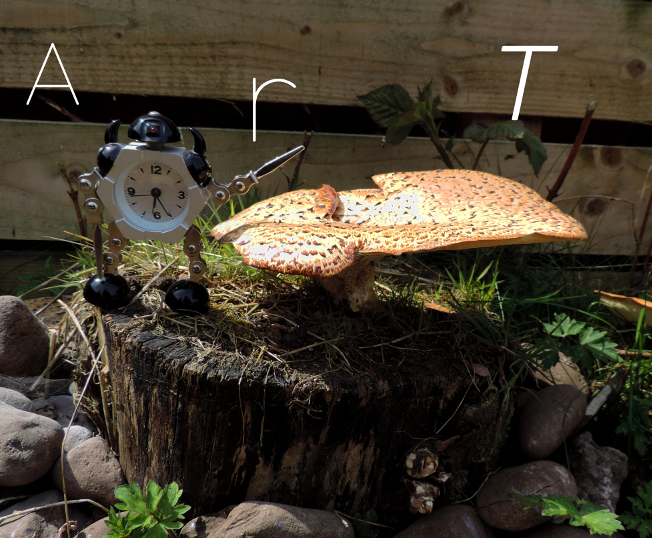
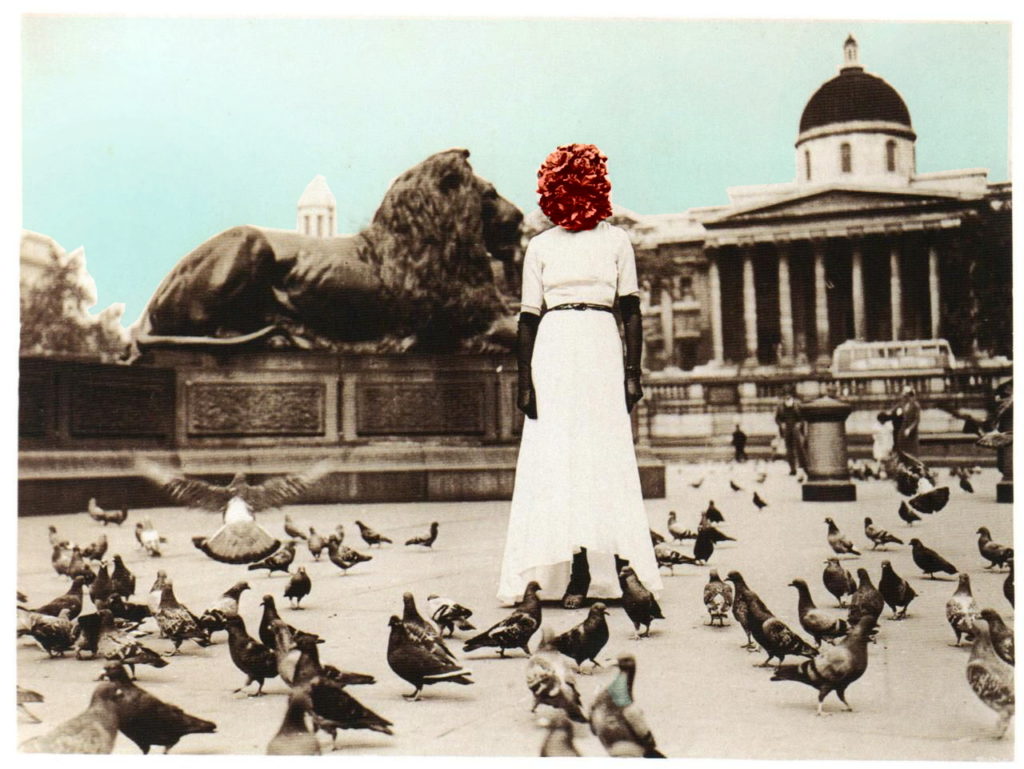
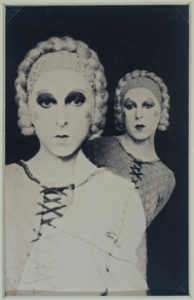
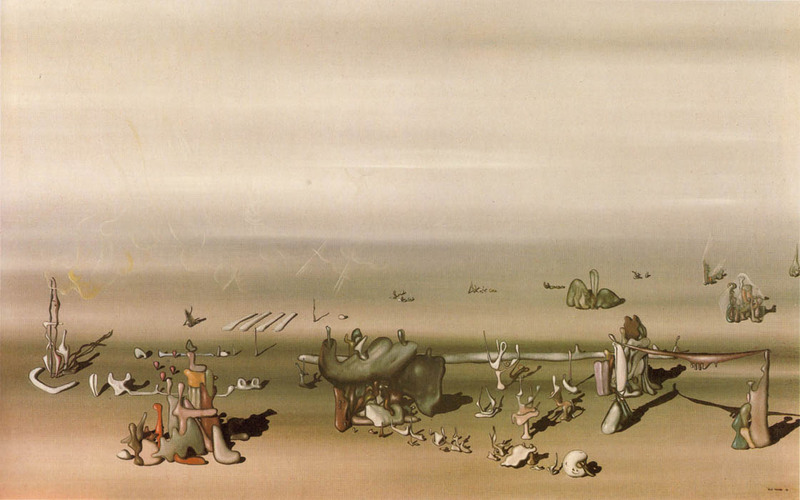


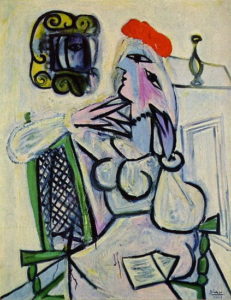

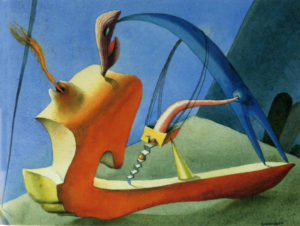
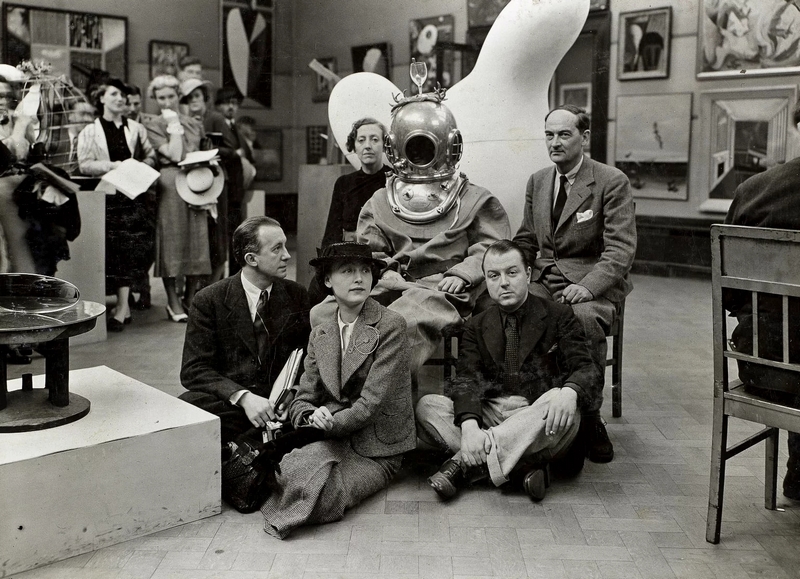


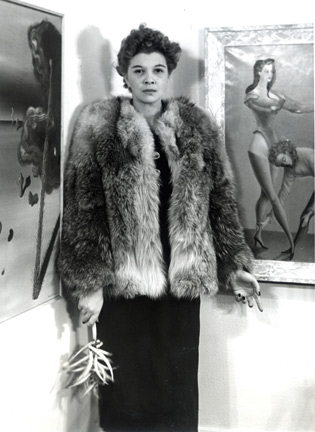



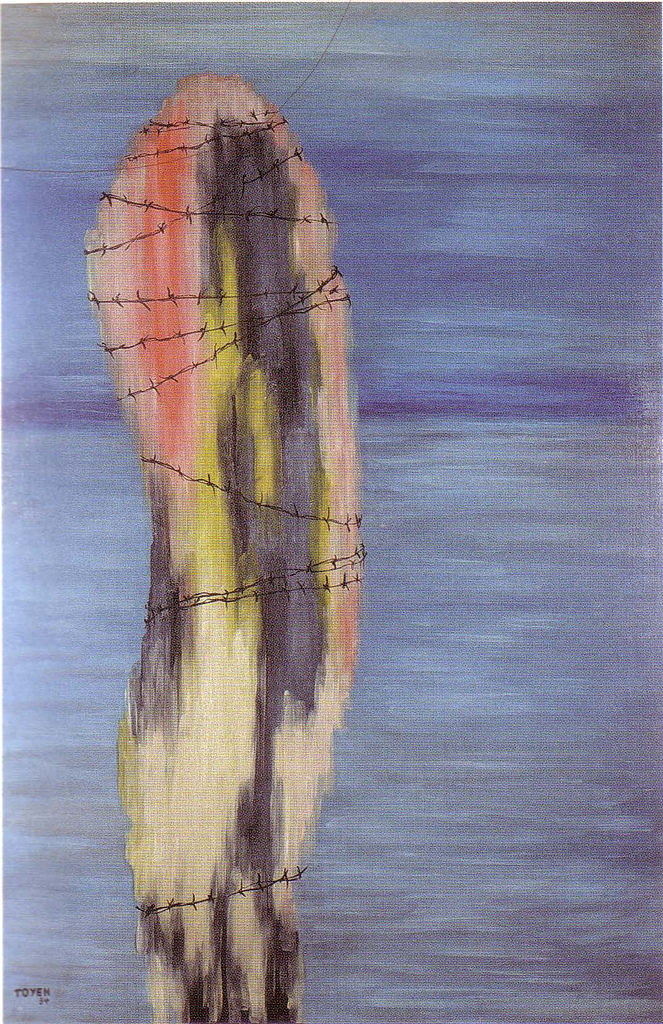


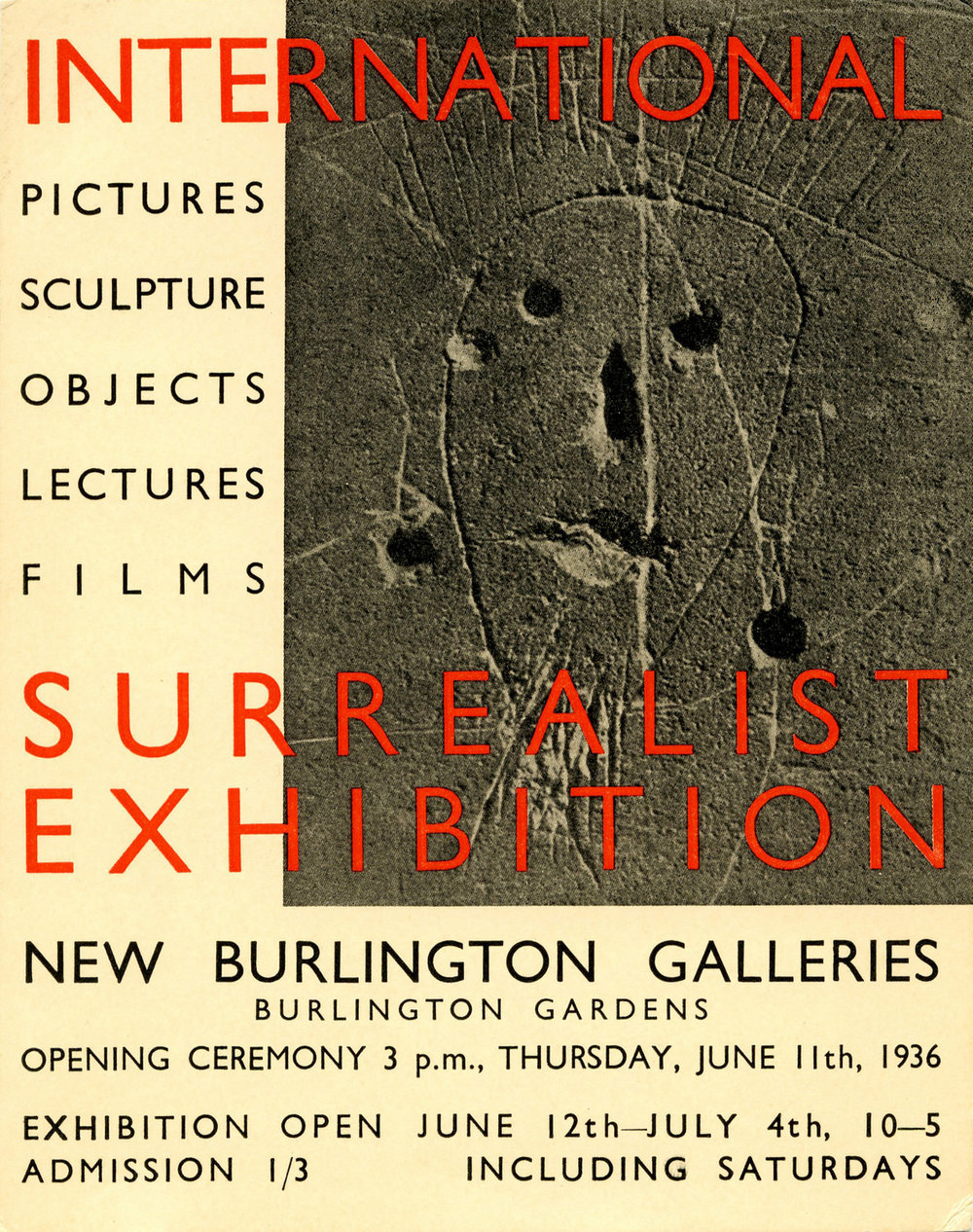




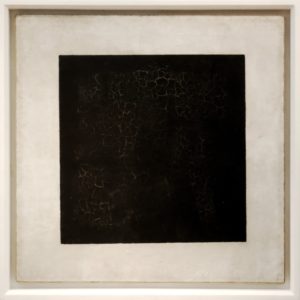


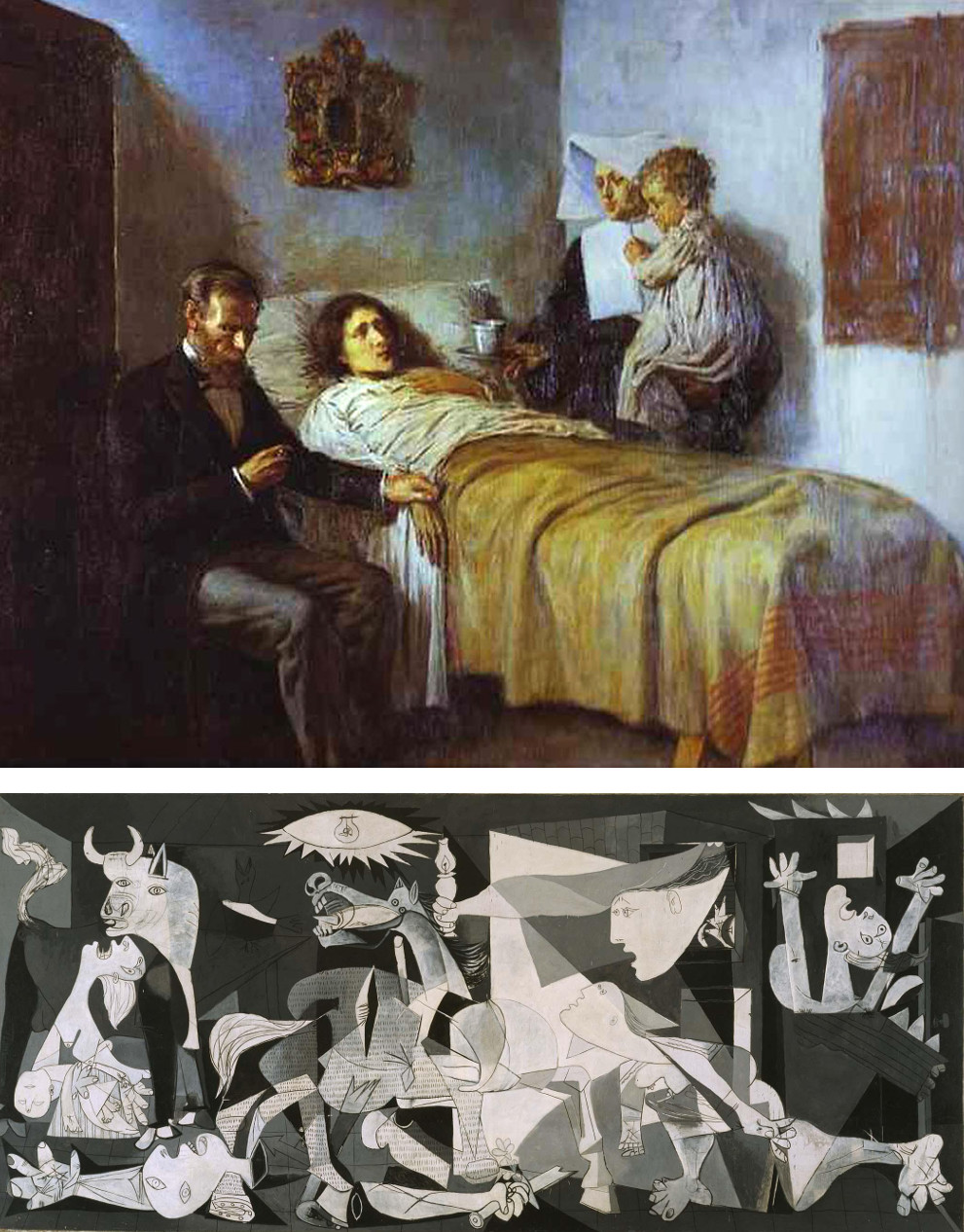
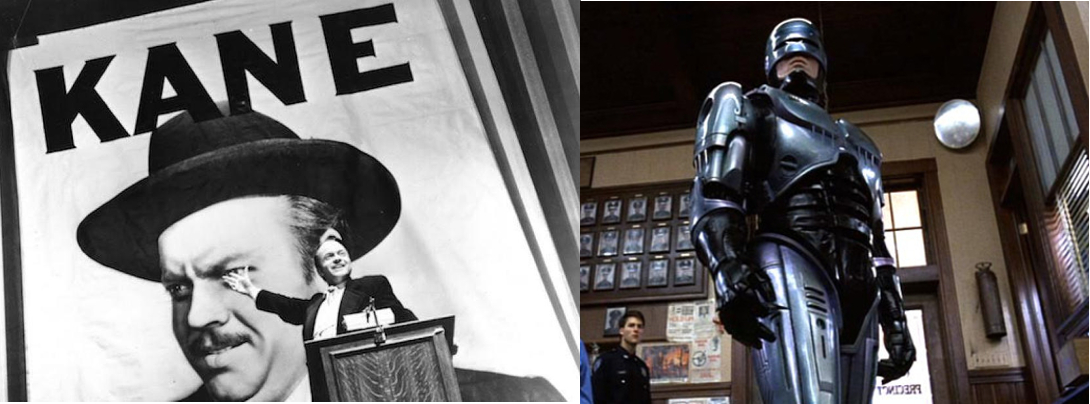


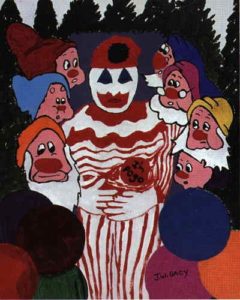 transmit something of himself; a clear-cut but deeply alienated/alienating vision of the world; actually, without a world. His pictures don’t as one might expect, depict a simplified Norman Rockwell America, with the sun in the sky and a clown in the garden, but essentially just the clown; mostly in fact Pogo the clown, Gacy’s own alter ego, sometimes with an extremely cursory, but telling hint of a setting. Not a circus, or the suburbia of the childrens’ parties he haunted, but a hint of a dark, fairytale forest (the seven dwarfs appear in a particularly odd picture). These are clowns in the wild. The term ‘outsider art’ could have been coined for Gacy’s paintings. The other often-used term, ‘naïve art’ seems fleetingly appropriate, until one considers pictures like his paintings of Charles Manson, or even more so, of Tim Curry’s Pennywise from the TV adaptation of Stephen King’s IT. Gacy may not have been a good painter, he may have been to all intents and purposes insane, but he was not naïve; he knew that he belonged to a pantheon of famous murderers, that he was the original killer clown, and he was flattered by the association.
transmit something of himself; a clear-cut but deeply alienated/alienating vision of the world; actually, without a world. His pictures don’t as one might expect, depict a simplified Norman Rockwell America, with the sun in the sky and a clown in the garden, but essentially just the clown; mostly in fact Pogo the clown, Gacy’s own alter ego, sometimes with an extremely cursory, but telling hint of a setting. Not a circus, or the suburbia of the childrens’ parties he haunted, but a hint of a dark, fairytale forest (the seven dwarfs appear in a particularly odd picture). These are clowns in the wild. The term ‘outsider art’ could have been coined for Gacy’s paintings. The other often-used term, ‘naïve art’ seems fleetingly appropriate, until one considers pictures like his paintings of Charles Manson, or even more so, of Tim Curry’s Pennywise from the TV adaptation of Stephen King’s IT. Gacy may not have been a good painter, he may have been to all intents and purposes insane, but he was not naïve; he knew that he belonged to a pantheon of famous murderers, that he was the original killer clown, and he was flattered by the association.


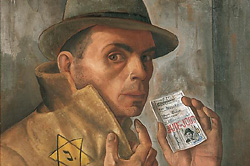


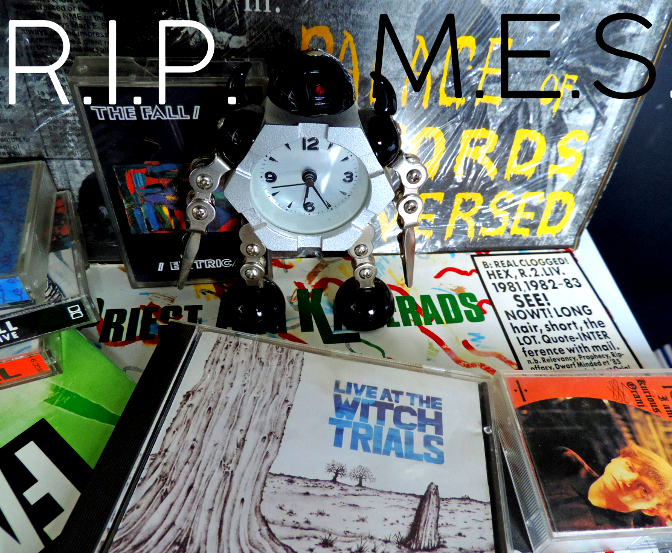

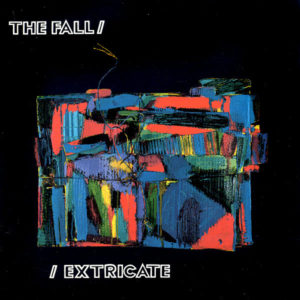
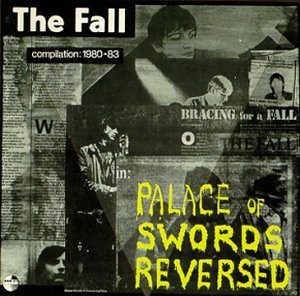 sophisticated, articulate, menacing but not unfriendly. A few years later, when I began to read
sophisticated, articulate, menacing but not unfriendly. A few years later, when I began to read 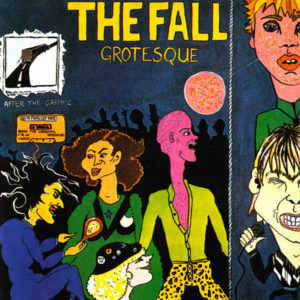 And that’s just the lyrics; another thing about The Fall that made an impression on me early on was that, although MES was incredibly fussy and perfectionist about the band’s music, he wasn’t snobbish in the usual way; no tune, if it was catchy, was too silly for Mark E. Smith. Think of the speedy but somehow miniature-sounding rock guitar on ‘Underground Medicine‘ or loping, bouncy beat to ‘Gramme Friday‘ or the oddly jaunty, countryish ‘Fit And Working Again‘. or the kazoo on ‘The North Will Rise Again‘– this was ‘angular’ (the definitive descriptive term for late 70s/early 80s UK indie rock) if you like, but it was not standard ‘post-punk’ music, nor was it (as it could easily have been) twee in that beloved ramshackle UK indie/C86 kind of way. Perhaps because Mark E. Smith was not (99% of the time) a melodic singer, the band could play anything behind him and it sounded right. When, at the beginning of one of my favourite songs, ‘Slates‘, MES shouts ‘this is the definitive rant‘ he’s nailing part of the charm of his work. As long as the rant was in place, no tune was too small, too jingly or too silly to make something worthwhile out of.
And that’s just the lyrics; another thing about The Fall that made an impression on me early on was that, although MES was incredibly fussy and perfectionist about the band’s music, he wasn’t snobbish in the usual way; no tune, if it was catchy, was too silly for Mark E. Smith. Think of the speedy but somehow miniature-sounding rock guitar on ‘Underground Medicine‘ or loping, bouncy beat to ‘Gramme Friday‘ or the oddly jaunty, countryish ‘Fit And Working Again‘. or the kazoo on ‘The North Will Rise Again‘– this was ‘angular’ (the definitive descriptive term for late 70s/early 80s UK indie rock) if you like, but it was not standard ‘post-punk’ music, nor was it (as it could easily have been) twee in that beloved ramshackle UK indie/C86 kind of way. Perhaps because Mark E. Smith was not (99% of the time) a melodic singer, the band could play anything behind him and it sounded right. When, at the beginning of one of my favourite songs, ‘Slates‘, MES shouts ‘this is the definitive rant‘ he’s nailing part of the charm of his work. As long as the rant was in place, no tune was too small, too jingly or too silly to make something worthwhile out of.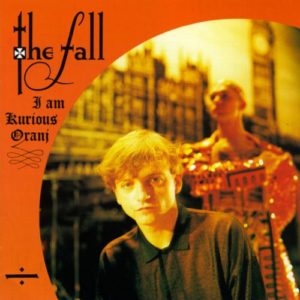 lot of it, and it was mostly pretty affordable, especially the stuff from the band’s then slightly maligned, now justly celebrated mid-80s period of relative commercial success. In itself, that success was odd and underlined just how unique the band, and specifically Smith’s vision, was. I loved that Mark E. Smith saw nothing elitist or strange about working with a ballet company, or in writing for the theatre and working with ‘serious’ artists and yet the people I knew who derided Morrissey as being “poncy” never seemed to think that about MES. The fact that he refused to separate the ‘high’ arts from his work with The Fall was so powerful. Everyone knows, for example, that Brian May is an astrophysicist, but imagine if astrophysics had somehow been indivisible from his work with Queen; they would have been far a more peculiar and far less successful, but also (with no offence intended to the band or its members) probably more interesting band.
lot of it, and it was mostly pretty affordable, especially the stuff from the band’s then slightly maligned, now justly celebrated mid-80s period of relative commercial success. In itself, that success was odd and underlined just how unique the band, and specifically Smith’s vision, was. I loved that Mark E. Smith saw nothing elitist or strange about working with a ballet company, or in writing for the theatre and working with ‘serious’ artists and yet the people I knew who derided Morrissey as being “poncy” never seemed to think that about MES. The fact that he refused to separate the ‘high’ arts from his work with The Fall was so powerful. Everyone knows, for example, that Brian May is an astrophysicist, but imagine if astrophysics had somehow been indivisible from his work with Queen; they would have been far a more peculiar and far less successful, but also (with no offence intended to the band or its members) probably more interesting band.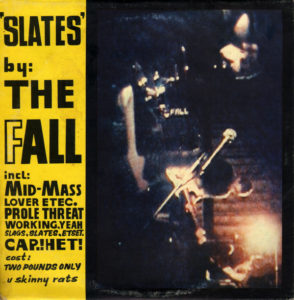 Although most of my favourite Fall albums are the early ones (especially Dragnet, Grotesque (After The Gramme) and Hex Enduction Hour) those 80s albums with the Mark and Brix-led lineup(s), especially The Wonderful and Frightening World Of The Fall are pretty unassailable and perhaps the least overtly commercial ‘commercial’ period of any band I can think of. The band stayed good though, and although I am not a Fall completist (a vocation rather than a hobby) I’ve found that any Fall record one picks up will have something great on it; and there aren’t many bands with a 40 year career you can say that about.
Although most of my favourite Fall albums are the early ones (especially Dragnet, Grotesque (After The Gramme) and Hex Enduction Hour) those 80s albums with the Mark and Brix-led lineup(s), especially The Wonderful and Frightening World Of The Fall are pretty unassailable and perhaps the least overtly commercial ‘commercial’ period of any band I can think of. The band stayed good though, and although I am not a Fall completist (a vocation rather than a hobby) I’ve found that any Fall record one picks up will have something great on it; and there aren’t many bands with a 40 year career you can say that about.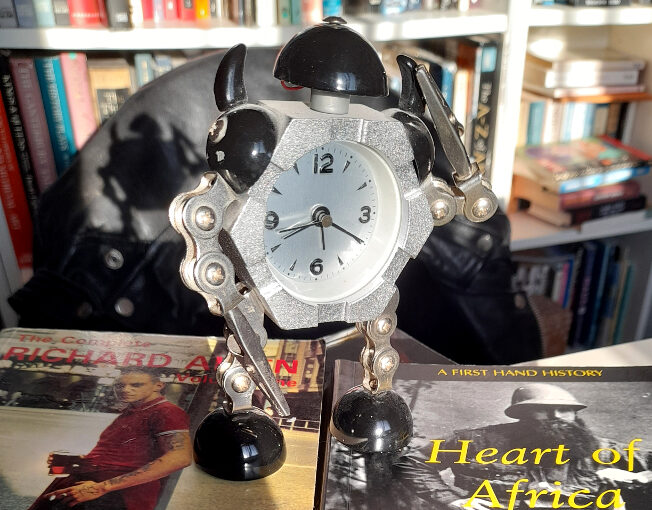
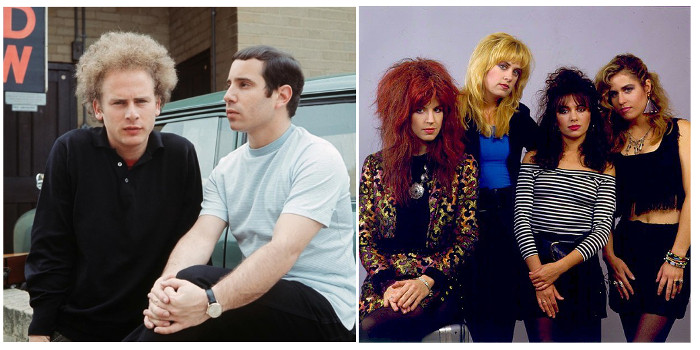
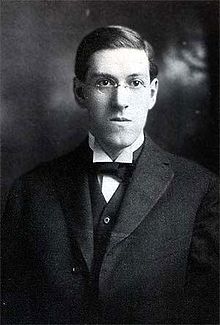 It’s approximately 90 years since HP Lovecraft wrote, “The oldest and strongest emotion of mankind is fear, and the oldest and strongest kind of fear is the fear of the unknown.” (in the essay Supernatural Horror in Literature (1926-7)), and it’s got to be something like 25 years or so since I first read those words (in the HP Lovecraft Omnibus Vol 2, Dagon and other Macabre Tales, Grafton Books, 1985, p.423 ). So what about it?
It’s approximately 90 years since HP Lovecraft wrote, “The oldest and strongest emotion of mankind is fear, and the oldest and strongest kind of fear is the fear of the unknown.” (in the essay Supernatural Horror in Literature (1926-7)), and it’s got to be something like 25 years or so since I first read those words (in the HP Lovecraft Omnibus Vol 2, Dagon and other Macabre Tales, Grafton Books, 1985, p.423 ). So what about it?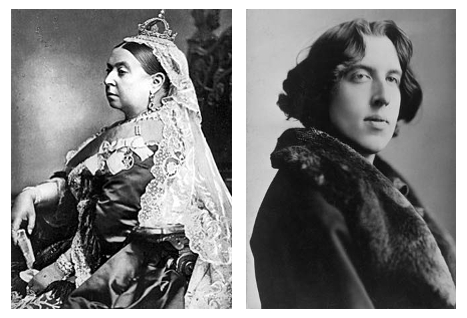
 This kind of complexity is what makes history more interesting than it’s sometimes given credit for. The Scottish Enlightenment was a wonderful, positive, outward-looking movement, but it coexisted in Scotland with a joyless, moralising and oppressive Calvinist culture. Time and nostalgia have a way of homogenising peoples and cultures. The popular idea of ancient Rome is probably one of conquest, grandeur and decadence, but what is the popular idea, if there is one, of ‘an ancient Roman’? Someone, probably a man, probably from Italy, in a toga or armour; quite likely an emperor, a soldier or a gladiator, rather than say, a merchant, clerk or farmer. But even within this fairly narrow image, a complex figure like the emperor Elagabalus (who was Syrian, teenage, possibly transgender) defeats the obvious school textbook perceptions of ‘Roman-ness’ (as, perhaps, it did for the Romans themselves). Even in our own time, the fact that older generations from the 60s/70s to the present could lament the passing of times when ‘men were men & women were women’ etc is – to say the least – extremely disingenuous. Presumably what they mean is a time when non-‘manly’ men could be openly discriminated against and/or abused and women could be expected to be quiet and submissive.
This kind of complexity is what makes history more interesting than it’s sometimes given credit for. The Scottish Enlightenment was a wonderful, positive, outward-looking movement, but it coexisted in Scotland with a joyless, moralising and oppressive Calvinist culture. Time and nostalgia have a way of homogenising peoples and cultures. The popular idea of ancient Rome is probably one of conquest, grandeur and decadence, but what is the popular idea, if there is one, of ‘an ancient Roman’? Someone, probably a man, probably from Italy, in a toga or armour; quite likely an emperor, a soldier or a gladiator, rather than say, a merchant, clerk or farmer. But even within this fairly narrow image, a complex figure like the emperor Elagabalus (who was Syrian, teenage, possibly transgender) defeats the obvious school textbook perceptions of ‘Roman-ness’ (as, perhaps, it did for the Romans themselves). Even in our own time, the fact that older generations from the 60s/70s to the present could lament the passing of times when ‘men were men & women were women’ etc is – to say the least – extremely disingenuous. Presumably what they mean is a time when non-‘manly’ men could be openly discriminated against and/or abused and women could be expected to be quiet and submissive.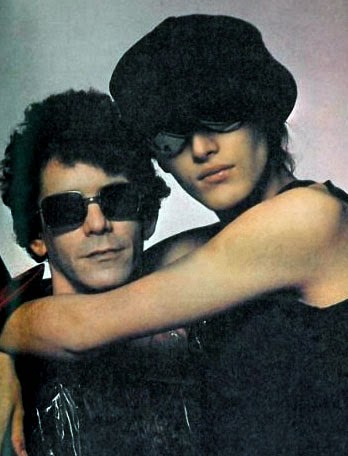
 It’s an interesting point. The fleetingness with which you experience things has nothing to do with their power as memories. I have no idea what the first horror film I saw was, but I do know that a scene on some TV show where skinheads (or possibly a single skinhead) glued a man’s hands to the wall of a lift/elevator scared me as a child and stayed with me for a long time. Maybe that was because I used to see skinheads around on the streets (you had to watch the colour of the laces in their Doc Martens to see if they were ‘bad’ skinheads or not – though they were probably kids too, I now realise). I also know now (but didn’t then) that these were the
It’s an interesting point. The fleetingness with which you experience things has nothing to do with their power as memories. I have no idea what the first horror film I saw was, but I do know that a scene on some TV show where skinheads (or possibly a single skinhead) glued a man’s hands to the wall of a lift/elevator scared me as a child and stayed with me for a long time. Maybe that was because I used to see skinheads around on the streets (you had to watch the colour of the laces in their Doc Martens to see if they were ‘bad’ skinheads or not – though they were probably kids too, I now realise). I also know now (but didn’t then) that these were the 